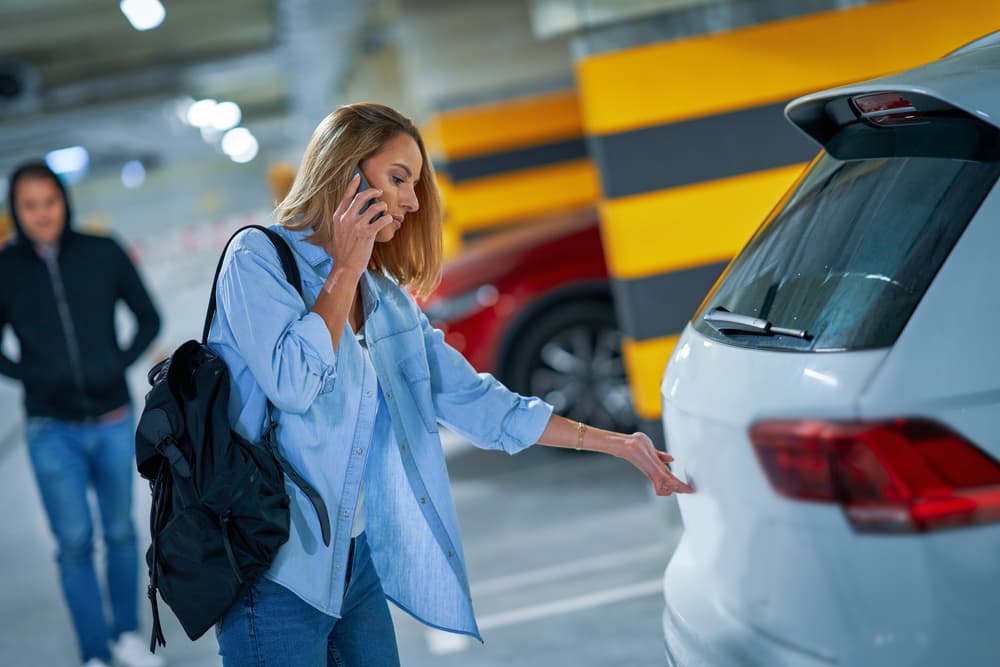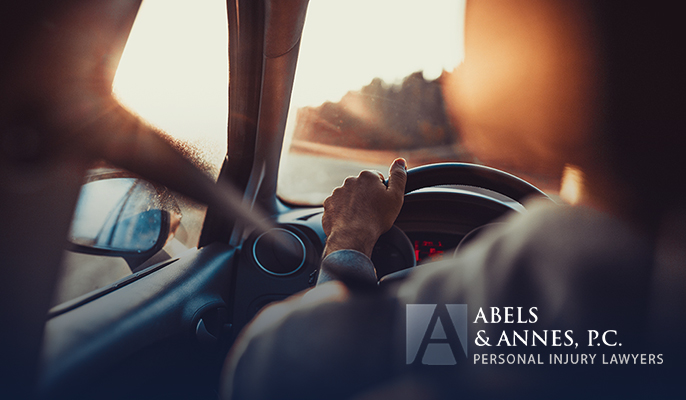Premises liability is an area of law that deals with accidents and injuries on someone else's property. These incidents can range from minor slips and falls to severe accidents resulting in life-altering injuries. Understanding the various types of premises liability accidents is important for property owners and visitors. This knowledge from a Phoenix premises liability attorney can help prevent accidents and provide insight into potential legal recourse if an injury does occur.
Phoenix Premises Liability Guide
- Slip and Fall Accidents
- Trip and Fall Accidents
- Snow and Ice Accidents
- Swimming Pool Accidents
- Dog Bite Incidents
- Elevator and Escalator Accidents
- Inadequate Security Incidents
- Fire Safety Violations
- Toxic Exposure
- Falling Object Injuries
- Amusement Park Accidents
- Parking Lot Accidents
- Call a Premises Liability Lawyer for a Free Consultation
Slip and Fall Accidents
One of the most common premises liability accidents is slip-and-fall. Slippery floors due to spills, uneven surfaces, poorly maintained walkways, and inadequate lighting are frequent causes of slip-and-fall accidents.
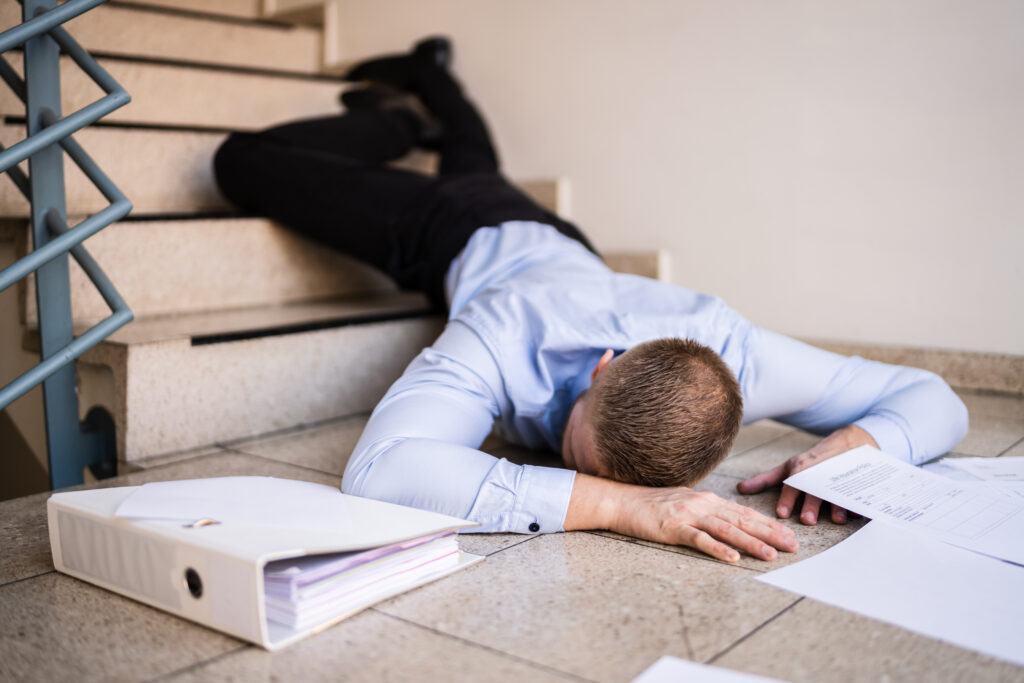
In a typical slip-and-fall scenario, a visitor to a property might encounter a wet floor that hasn't been properly marked with warning signs. The visitor slips on the wet surface, falls, and potentially suffers injuries ranging from bruises and sprains to more serious harm like broken bones or head trauma.
Property owners have a responsibility to maintain safe conditions for visitors. This includes promptly cleaning up spills, repairing uneven flooring, and ensuring adequate lighting. When they fail to do so, and an injury occurs, they may be held liable under premises liability law.
It's worth noting that not all slip-and-fall accidents automatically result in a successful premises liability claim. The injured party must typically prove that the property owner knew or should have known about the dangerous condition and failed to address it in a timely manner.
Trip and Fall Accidents
While often grouped with slip-and-fall incidents, trip-and-fall accidents have distinct characteristics. They usually occur when a person's foot comes into contact with an obstacle, causing them to lose balance and fall forward.
For example, a customer at a retail store might trip over a box left in an aisle by an employee. If the store fails to maintain clear pathways for customers, they can be held responsible for any resulting injuries.
Property owners should regularly inspect their premises for potential tripping hazards and address them promptly. This might involve repairing damaged flooring, ensuring proper lighting to illuminate elevation changes, and implementing procedures for keeping walkways clear of obstacles.
Snow and Ice Accidents
In regions that experience cold winters, snow and ice-related accidents are a significant concern. Property owners must actively remove snow and ice from walkways, parking lots, and other areas visitors visit.
These accidents often occur when property owners fail to adequately clear snow and ice or neglect to treat surfaces with salt or sand to improve traction. For instance, a visitor might slip on an icy sidewalk leading up to a business entrance, resulting in a fall and potential injuries.
Property owners' specific responsibilities regarding snow and ice removal can vary depending on local laws and regulations. Some jurisdictions have "storm in progress" rules that provide a reasonable amount of time to address snow and ice after a weather event has ended.
Swimming Pool Accidents
Swimming pools, while enjoyable, can also be the site of serious premises liability accidents. Pool-related incidents can include drownings, near-drownings, slips and falls on wet surfaces surrounding the pool, and injuries from diving into shallow water.
In many jurisdictions, swimming pools are considered an "attractive nuisance." This legal doctrine holds property owners responsible for taking extra precautions to prevent children from accessing the pool unsupervised, even if the children are trespassing.
A premises liability lawyer or personal injury attorney can help determine liability in swimming pool accident cases, sometimes involving multiple parties such as property owners, pool maintenance companies, or equipment manufacturers.
Dog Bite Incidents
While not always considered a premises liability issue, dog bite cases often fall under this category of law. Property owners are responsible for ensuring that their pets do not pose a danger to visitors.
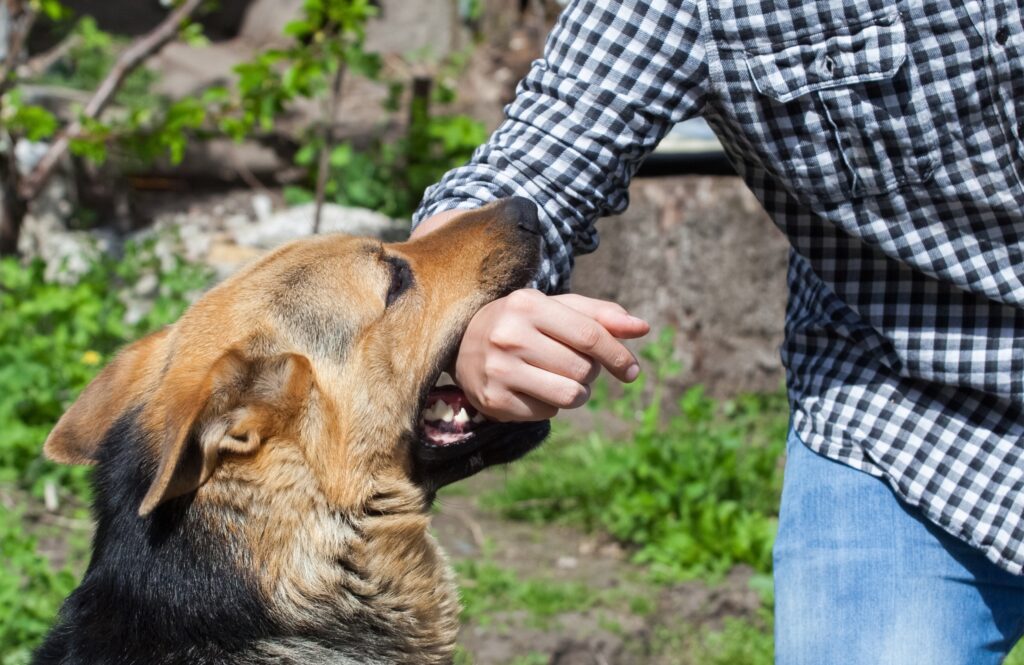
Dog bite laws vary by state, with some following a "one-bite rule" and others imposing strict liability on dog owners. In a one-bite rule state, the owner may not be held liable if they had no reason to believe their dog was dangerous. In strict liability states, the owner is generally responsible for any injuries the dog causes, regardless of the dog's prior behavior.
If a dog bite occurs on someone's property, the victim may have grounds for a premises liability claim against the owner. A premises liability lawyer can help navigate the specific laws and circumstances surrounding the incident.
Elevator and Escalator Accidents
While generally safe, elevators and escalators can be the site of serious accidents when not properly maintained or operated. Due to their mechanical nature, these incidents can result in severe injuries.
Common elevator accidents include:
- Doors closing on passengers
- Sudden stops or drops
- Misalignment with floors, causing tripping hazards
- Entrapment due to malfunctions
Escalator accidents often involve:
- Clothing or body parts becoming caught in the mechanism
- Falls due to sudden stops or starts
- Injuries from improperly maintained parts
Property owners who have elevators or escalators on their premises are responsible for ensuring regular maintenance and inspections. They should also post clear instructions for proper use and emergency procedures.
In the event of an elevator or escalator accident, liability may extend beyond the property owner to include maintenance companies or manufacturers. A personal injury attorney can help identify all potentially responsible parties in these complex cases, investigate the maintenance history and equipment specifications, gather evidence of negligence, and build a strong case on your behalf. Their knowledge of relevant laws and regulations ensures thorough representation to maximize your chances of obtaining fair compensation for your injuries and losses.
Inadequate Security Incidents
Property owners must provide reasonable security measures to protect visitors from foreseeable criminal activities. When they fail to do so, and a visitor becomes the victim of a crime, a premises liability claim for inadequate security may result.
Examples of inadequate security might include:
- Lack of proper lighting in parking lots or common areas
- Failure to install or maintain security cameras
- Absence of security personnel in high-crime areas
- Broken locks or malfunctioning access control systems
For instance, if an apartment complex in an area known for high crime rates fails to provide adequate lighting or secure entry systems and a tenant is assaulted, the property owner might be held liable for failing to take reasonable security precautions.
The level of security required can vary depending on the location, type of property, and known risks. A premises liability lawyer can help determine whether a property owner's security measures are adequate given the specific circumstances.
Fire Safety Violations
Property owners must maintain proper fire safety measures to protect visitors and occupants. When these measures are inadequate or non-existent, a fire-related injury may lead to a premises liability claim.
Common fire safety violations include:
- Lack of functioning smoke detectors or fire alarms
- Absence of fire extinguishers or sprinkler systems
- Blocked fire exits or inadequate emergency lighting
- Failure to conduct regular fire safety inspections
In a premises liability case involving fire safety, the injured party must show that the property owner's negligence in maintaining proper fire safety measures directly contributed to their injuries.
Property owners should conduct regular fire safety inspections to prevent these incidents, maintain all fire safety equipment, and ensure clear evacuation routes are always accessible. They should also educate occupants or employees about fire safety procedures and conduct regular drills when appropriate.
Toxic Exposure
Exposure to harmful substances on a property can lead to serious health issues and potential premises liability claims. These cases can involve exposure to substances such as:
- Asbestos
- Lead paint
- Mold
- Carbon monoxide
- Pesticides or other chemicals
Property owners are responsible for identifying and addressing potential toxic hazards on their premises. This might involve conducting regular inspections, properly maintaining building materials, and promptly addressing any issues.
For example, suppose a landlord fails to address a known mold problem in an apartment, and a tenant develops respiratory issues. In that case, the landlord can be liable for the tenant's medical expenses and other damages.
Toxic exposure cases can be particularly complex, often requiring extensive documentation and professional testimony to establish the link between the exposure and the resulting health issues. A personal injury attorney with experience in premises liability can help gather the necessary evidence and build a strong case.
Falling Object Injuries
Injuries from falling objects can occur in various settings. These accidents happen when objects are improperly stored, secured, or maintained, leading them to fall and strike individuals below.
Common scenarios include:
- Items falling from high shelves in stores
- Debris falling from buildings that are under renovation
- Tree branches falling in poorly maintained outdoor areas
- Signs or fixtures falling due to improper installation
Property owners and managers have a duty to ensure that objects are safely secured and that areas where falling objects are a risk are properly marked or cordoned off. They should regularly inspect their premises for potential hazards and address them promptly.
In a retail setting, for instance, stores should ensure that merchandise is safely on shelves and that employees receive training in proper stocking procedures. These sites should have adequate safety measures to prevent materials from falling and injuring passersby.
If someone suffers an injury from a falling object on another person's property, they may have grounds for a premises liability claim. The specific circumstances of the incident, including whether the property owner knew or should have known about the risk, will play a role in determining liability.
Amusement Park Accidents
While amusement parks aim to provide fun and excitement, they can also be the site of serious accidents when proper safety measures are not in place. These incidents can range from minor injuries to catastrophic accidents on rides.
Common types of amusement park accidents include:
- Malfunctioning rides leading to falls or collisions
- Slip and fall incidents on wet or uneven surfaces
- Injuries from improperly maintained equipment
- Food poisoning from park concessions
Amusement park operators have a high duty of care to ensure the safety of their guests. This includes regular maintenance and inspection of rides and equipment, proper training of staff, and clear safety instructions for patrons.
Liability may extend to multiple parties in an amusement park accident, including the park operator, ride manufacturers, or maintenance contractors. A premises liability lawyer can help identify all potentially responsible parties and handle the difficult legal issues often involved in these cases.
Parking Lot Accidents
Parking lots and garages can be the site of various premises liability accidents. While many people primarily think of parking areas in terms of vehicle accidents, they can also be locations where pedestrians may sustain injuries due to hazards or negligent maintenance.
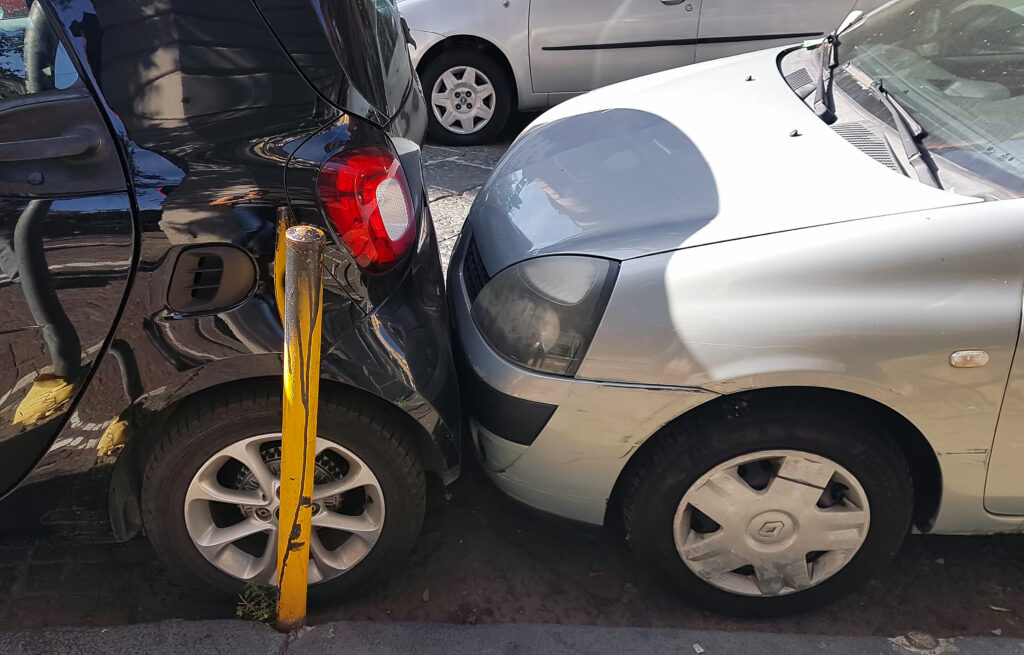
Common parking lot hazards include:
- Poorly maintained surfaces lead to trip and fall accidents
- Inadequate lighting increases the risk of falls or criminal activity
- Lack of proper signage or traffic control measures
- Accumulation of snow and ice in colder climates
Property owners are responsible for maintaining safe conditions in their parking areas. This includes regular inspections, prompt repairs of any hazards, and appropriate security measures.
For example, if a business fails to repair large potholes in its parking lot and a customer trips and falls, it can be held liable for the customer's injuries. Similarly, if inadequate lighting in a parking garage leads to a criminal assault, the property owner might be found negligent for failing to provide adequate security.
A premises liability lawyer or personal injury attorney can help determine liability in parking lot accident cases, which may involve complex property ownership, maintenance responsibilities, and insurance coverage issues.
Call a Premises Liability Lawyer for a Free Consultation
Have you or a loved one suffered an injury in a premises liability accident? Don't face the legal system alone. Reach out today for a free consultation with a personal injury attorney specializing in premises liability cases. They can guide your legal options, assess the strength of your claim, and explain any time limits that may apply. Remember, time is critical in preserving evidence and protecting your rights. Your recovery journey starts with a single call – reach out now and take the first step towards justice and full compensation for your injuries.

